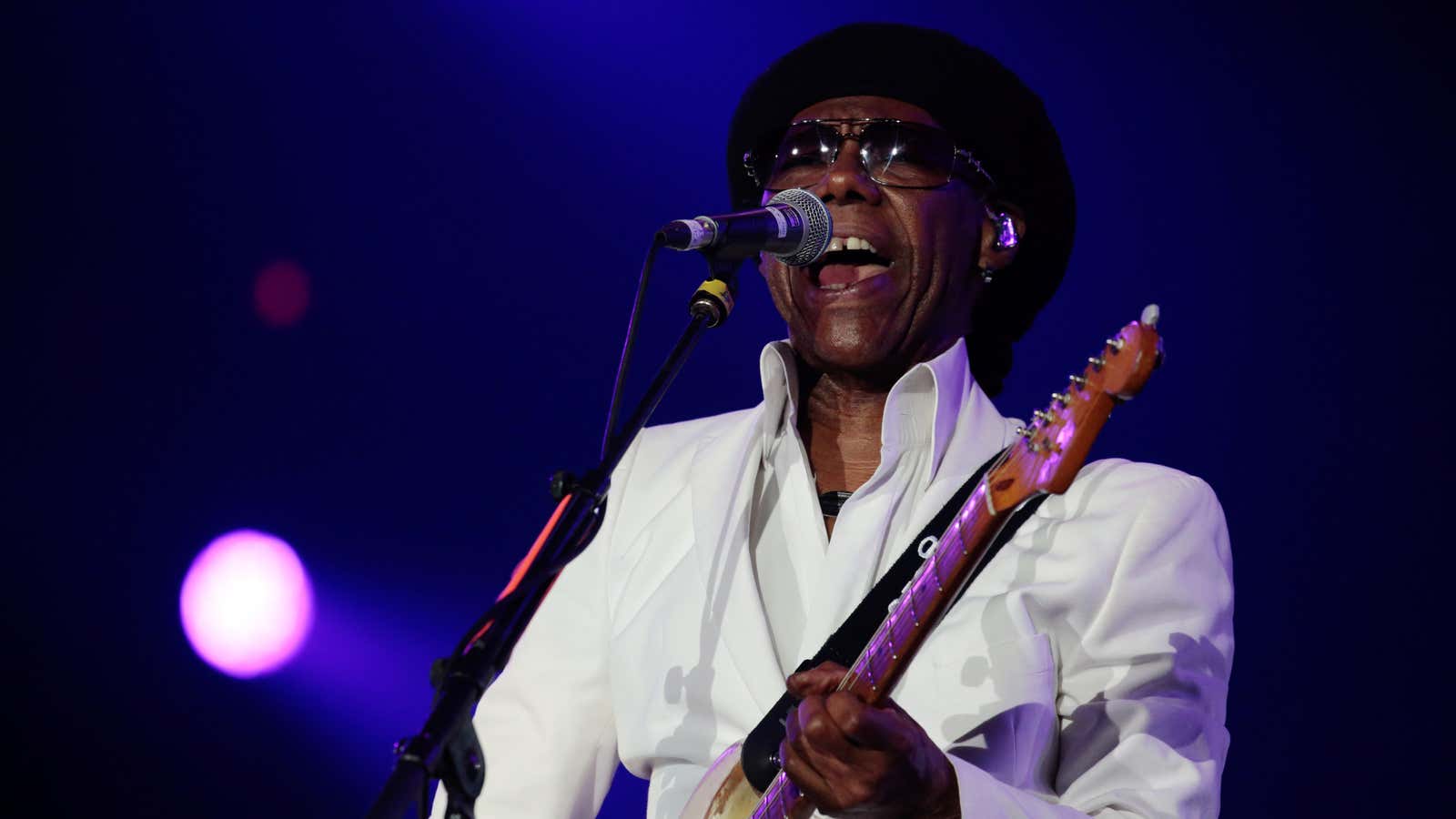An influential group of British lawmakers wants a “complete reset” of music streaming’s business model, so that artists can earn a fairer share of the revenues made by giant companies like Spotify, Amazon, and Apple.
The Department for Digital, Culture, Media, and Sport committee, which heard testimony from more than a hundred artists, record labels, producers, and streaming companies since last October, found that musicians and songwriters make “pitiful returns”—if they make anything at all. Often, artists don’t even know how much they’re supposed to earn, because agreements between record labels and streaming services are subject to non-disclosure agreements. The industry’s norm, the commitee found, “is that of opacity.”
In the UK, musical artists earned, on average, £23,059 ($31,963) in 2018. (The average annual income in the country is just under £30,000.) Around 92% of these artists said that less than 5% of their income comes from streaming, according to a survey by the Ivors Academy of Music Creators. Critical acclaim often means little. Nadine Shah, a singer-songwriter whose third album was nominated for the prestigious Mercury prize, told the committee: “I am in a position now where I am struggling to pay my rent.”
Streaming services themselves do make money. In 2019, streaming earned $11.2 billion out of the music industry’s $20 billion in revenue, and it is now such a large part of the industry’s future that investors and funds are spending hundreds of millions of dollars to pick up rights catalogs of stars. But musicians themselves—especially if they aren’t stars, or even close—depend on live performances for 70% of their income, the committee found. And that income dried up entirely during the pandemic in 2020.
How do streaming services pay artists?
If a song is streamed for at least 30 seconds, it has officially been “played” for the purposes of revenue. Spotify and other services keep around 30-35% of their gross revenue, according to an industry estimate. Then, every month, a service like Spotify will sum up the number of times a particular record label’s songs were played, and pay out an agreed-upon percentage of the revenue earned by the service that month. In turn, the record label retains a large part of that percentage and distributes the fractional rest to its artists.
This system calls for artists to take record labels at their word, and for record labels to take streaming services at their word. Everyone has to trust the algorithm that selects and serves up music according to personal tastes, for instance, but no artist or label can peek inside the algorithm to see how it works.
Artists and labels also have the legal right to “audit” streaming services every two or three years, to ensure that song plays aren’t being under-reported. But in reality, it doesn’t always work out that way.
“I am constantly met with much resistance and there are always reasons why [the data] is not available,” Colin Young, a music accountant, told the committee. When audits do happen, music creators often find evidence of under-reported song plays and money that should have been paid out but wasn’t.
“Every single time—and I am not making this up for dramatic or comedic purposes—I have audited a label, I have found money,” the musician Nile Rodgers said. “Sometimes it is staggering, the amount of money.”
What does it mean to stream music?
In part, deciding how to apportion revenue is difficult because no one can figure out what a streamed song is, exactly, under copyright law. Is it a sale, the way customers bought CDs? Is it a rental of a song for a period of time? “It is hard to find analogs in the physical world of what streaming is,” Horacio Gutierrez, Spotify’s chief legal officer, told the committee.
In its report, the committee backed a different model, closer to music broadcast over the radio, or DVDs rented from libraries. Under copyright law, this would accord musicians “equitable remuneration,” splitting revenues 50:50 with record labels.
In April, more than 230 leading musicians, including Paul McCartney, Sting, Kate Bush, and Lily Allen, wrote a letter to prime minister Boris Johnson recommending the “equitable remuneration” model. A version of it has been in place since 2006 in Spain, where an agency collects royalty payments directly from streaming services to disburse to artists and songwriters.
Restoring equity might also mean higher subscription rates for listeners, especially as venture capital money starts dwindling, which makes it less viable for platforms to compete on price alone. “On the whole,” Gutierrez said, “prices will rise.”
